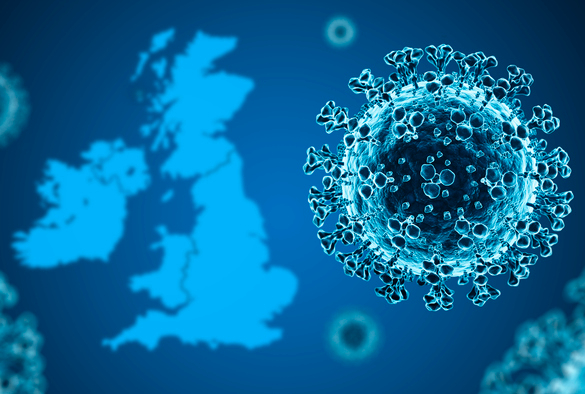
Research into how the COVID-19 pandemic has affected people with blood cancer is to be expanded after a team from the Faculty of Health and Life Sciences and The Clatterbridge Cancer Centre won £280,000 of competitive funding from Blood Cancer UK.
Many people with blood cancer, which includes leukaemia, lymphoma and myeloma, have a weakened immune system due to the underlying disease or its treatment. As a result of this, they are not as good at fighting off the virus that causes COVID-19 compared with healthy people, and this has led to changes in some blood cancer treatments during the pandemic.
The UnCoVer study (Understanding the impact of SARS-CoV-2 infection in patients with blood cancer), which is led by HLS’s Professor Andy Pettitt, Professor Nagesh Kalakonda and Professor Catrin Tudur-Smith, is using routinely collected NHS data to find out which blood cancer patients are most vulnerable to COVID-19.
The new funding from Blood Cancer UK will allow the UnCoVer study to be extended by finding out how the treatment of blood cancer has changed during the pandemic. It will also look at the pros and cons of different blood cancer treatments to see which of them work best in different situations. The research will involve a network of collaborators from across the UK including not only senior blood cancer doctors but also patients and early career researchers.
Professor Pettitt, who is the Ronald Finn Chair of Experimental Medicine at the University of Liverpool and a Consultant Haemato-oncologist at The Clatterbridge Cancer Centre NHS Foundation Trust, said: “We are delighted to receive this grant and grateful to Blood Cancer UK for awarding it. Understanding how blood cancer treatment and outcomes have changed during the COVID-19 pandemic is not only important in its own right but also provides an opportunity to study the effectiveness and side effects of new treatments that were rolled out during the pandemic.
“By shedding light on current practice and treatment outcomes, the research will highlight unmet needs and inequalities and show the difference between clinical trial data and real-world outcomes. This, in turn, will pave the way to future research that tackles these knowledge gaps and unmet needs.
“The research will also foster new collaborations, provide training opportunities for early career researchers and involve patients in the research at all levels. In doing so, it will benefit patients both directly and indirectly by helping to build a stronger and more patient-focused blood cancer research community.”
Dr Maria Maguire, Clatterbridge’s Head of Research Governance and Sponsorship, said: “We are very pleased that this grant application has been successful. The Clatterbridge Centre is taking the national lead in this area of research, which will have a direct benefit for our blood cancer patients.”
Sarah McDonald, Deputy Director of Research at Blood Cancer UK said: “The COVID pandemic disproportionately affected those with blood cancer. Research has already looked to see how treatment for blood cancer changed during the pandemic and see how outcomes for those with blood cancer have been affected.
“The research team will use the data from around 700,000 patients for wider blood cancer research to identify unmet needs and provide an evidence base to change future clinical guidelines.
“Using existing data will maximising the impact of research funding, which as a charity dedicated to improving outcomes for patients with blood cancer is so important.”